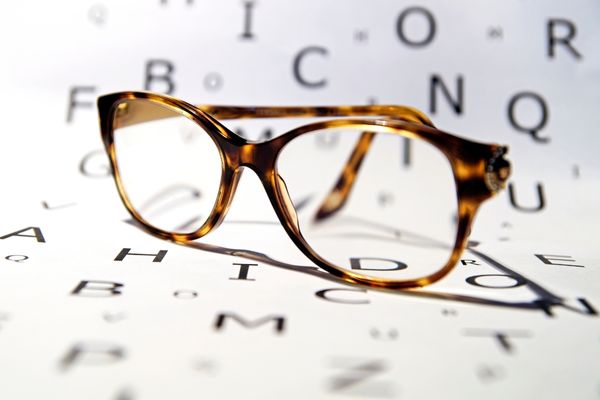
Deadline: 10-Oct-22
The United States Agency for International Development (USAID) is seeking applications for the program entitled “Expanding Access to Low-Cost Eyeglasses and Assistive Technology”.
The United States Agency for International Development (USAID) is funding one three-year grant for up to USD $2.5 million in partnership with ATscale, the Global Partnership for Assistive Technology, with the purpose of expanding low-cost eyeglass provision and supporting strategic AT activities in an identified country.
Objectives
There are two key objectives for this project:
- Expansion of screening, refractive services, and eyeglasses provision: The project intends to support the effective expansion of screening, refractive services, and eyeglasses provision and integration of these approaches into government-led programs. It is essential that solutions proposed are government-owned, based on proven models, and are integrated into public health and education systems and leverage the strengths of both the public and private sectors. While it is not anticipated that national scale will be achieved within this three-year award, the activities proposed should identify a clear pathway to achieve national scale in the medium term.
- Creating a favourable environment for long-term AT investments: The project also aims to build a conducive environment in the country for long-term AT investments. It is important that in-country stakeholders from inter-sectoral ministries, NGOs, OPDs and private sector are engaged in assessment, needs establishment, raising awareness, and shaping policy, strategy plans etc. on AT provision. Initiatives should be proposed in LMICs where there is already a good foundation for the work, including strong political will. Given the scope and duration of funding, it is envisioned that this grant will be utilised to catalyse important foundational structures required for a comprehensive national approach to address refractive error and the wider AT sector.
Overall sector: Assistive technology, vision and vision impairment, refractive error, eyeglasses, spectacles, health
Funding Information
The funding available for this grant is up to USD 2.5 million.
Interventions
A range of interventions can be proposed depending on context and consultations with the government:
- Assessing the needs and system barriers: Working with public and private stakeholders to assess the AT needs, services, gaps, etc. This can include support for situation assessments such as the WHO ATA-C and rATA. Assessments should clearly reflect the existing systems across various domains (mobility, vision, hearing, speech, cognitive, and self-care), prevailing policy gaps and barriers, stakeholder coordination, service delivery systems, and unmet needs.
- Raising awareness: Engagement with national and sub-national public authorities, organisations of people living with disabilities, and other relevant stakeholders to raise awareness around the need for and value of AT, including disseminating findings from situation assessments.
- Building the foundations: Foundational policy and planning-related support is key to creating a conducive environment for more substantial support. This could include review and/or development of key policy related to access to AT; developing or updating of the Assistive Products List (APL); developing a national strategy or national action plan,; etc. The proposed work must help guide the longer-term investments by governments and partners. The depth of progress to be achieved within this project will be greatly influenced by the context, but it is anticipated that the proposed activities will prepare the country to launch an expansive AT program as a follow on activity within the three year program or immediately after.
Project Deliverables
- An updated situational analysis highlighting progress in the country relative to the country’s overall ability to provide quality eyeglasses.
- A clear indication of the increase in the number of people reached with quality screening, refractive services, and eyeglasses.
- Clear articulation of the AT strategic activities and intended outcomes throughout the period
- Demonstration of the achievements and improvement in the elements of the roadmap strengthened specifically by the project activities. Please note that more details regarding deliverables should be discussed and jointly confirmed during the contracting period based on the activities of the successful proposal.
Eligibility Criteria
Limitations: Only not-for-profit organisations, such as non-governmental organisations (NGOs) and academic institutions, with demonstrated experience developing health, assistive technology and/or eyeglass programming in partnership with national governments in low-or middle-income countries are eligible to apply. Consortiums may apply, but a prime organisation must be selected as part of that consortium and must be a not-for-profit organisation as described above. For-profit organisations may be included in the project through sub-agreements.
Minimum requirements/qualifications:
- The Grantee must have adequate management, financial, administrative, and technical structure and capacity to conduct the proposed activities.
- The Grantee must propose one low- or middle-income country (LMIC) eligible for Oversees Development Assistance in which they intend to conduct the work and provide a justification for selecting this country, as well as evidence of political commitment of the Government.
Other critical considerations:
- Past performance will be strongly considered when selecting the most suitable proposal.
- The project approach should indicate how lessons learned and/or relevant proven models/approaches from the vision sector or other sectors will be applied.
- Applicants who can demonstrate evidence of successful implementation of work in a similar low- or middle-income country context, integrated into national systems, will be considered favourably by the evaluation committee.
- Strong local ties to the proposed country and a clear pathway to national ownership of the work will be considered assets.
- The clarity and extent to which the work proposed will be integrated with other (national) vision, assistive technology and health services will be strongly considered by the evaluation committee.
- Applicants proposing an approach that clearly leverages partnership and resources beyond this grant will be considered favourably by the evaluation committee.
- Integrating persons with disabilities and/or users of assistive technology as part of the project team is strongly encouraged.
- Project team composition should include both men and women.
For more information, visit https://www.ungm.org/Public/Notice/182497
